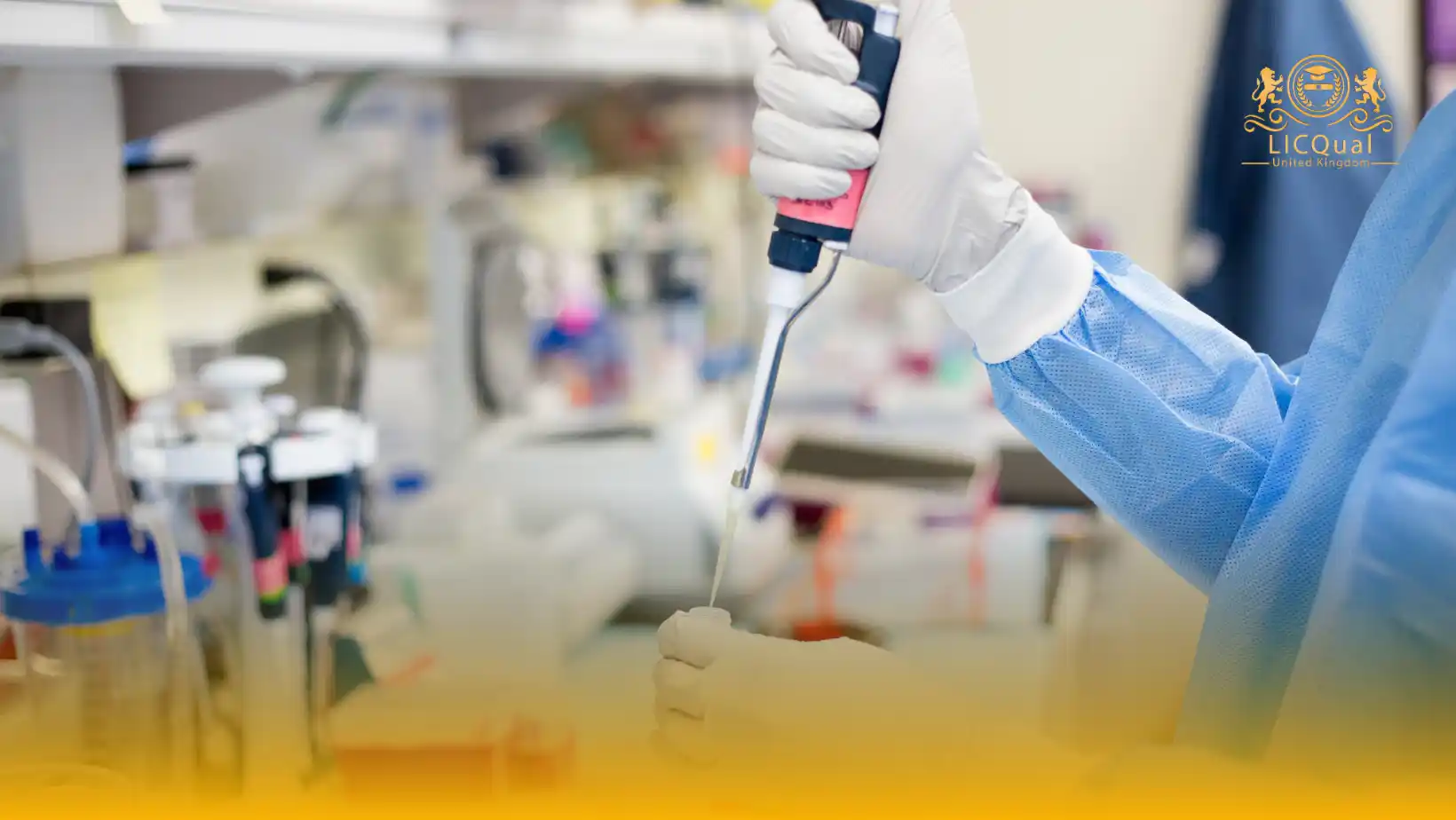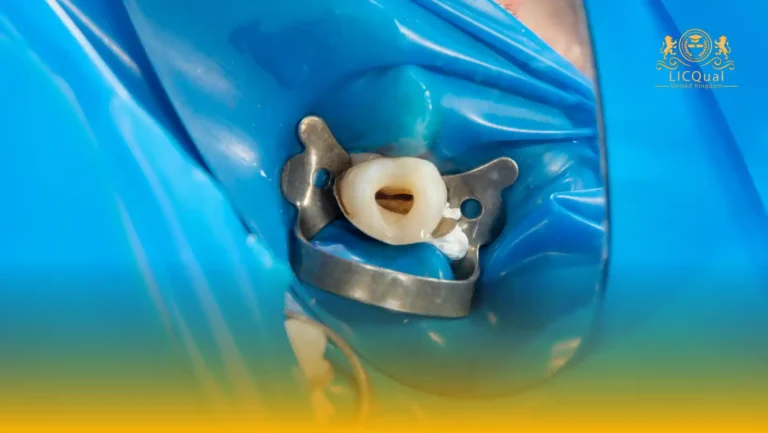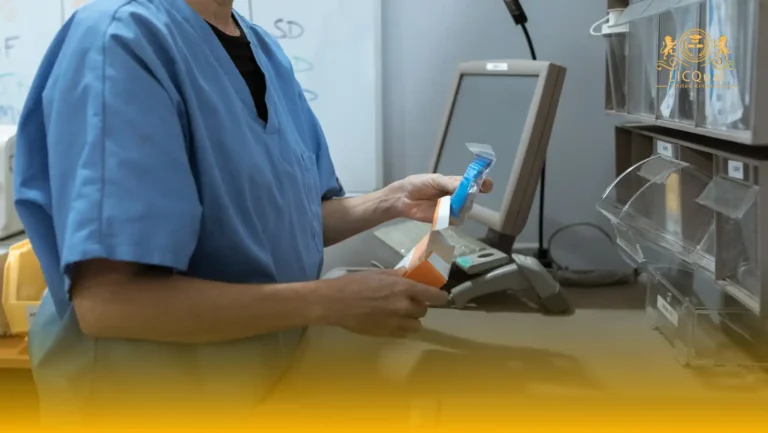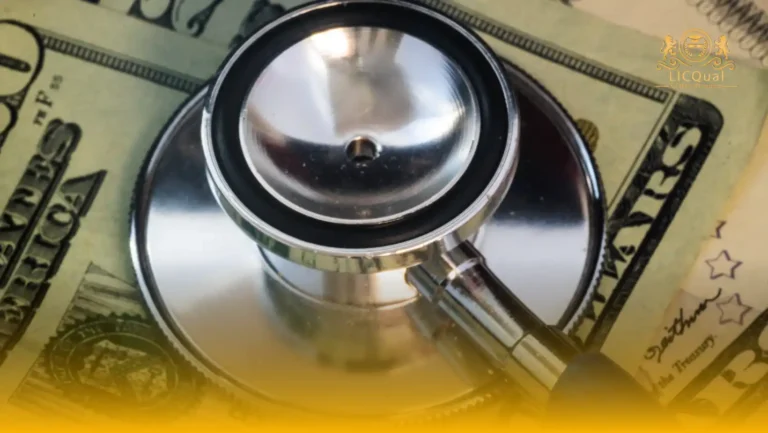The LICQual Level 3 Diploma in Pharmaceutical Sciences (Dip Pharmaceutical Sciences) is a comprehensive qualification designed to provide learners with advanced knowledge and practical skills in the field of pharmaceutical science. This programme equips learners with a deep understanding of drug development, formulation, manufacturing, quality control, and regulatory requirements, preparing them for a successful career in the pharmaceutical industry.
Learners undertaking this diploma will explore a broad spectrum of topics, including pharmacology, pharmaceutical chemistry, dosage forms, analytical techniques, and quality assurance. The course emphasises the application of scientific principles to real-world pharmaceutical practices, enabling learners to contribute effectively to research, production, and clinical applications within the sector.
This qualification is aimed at professionals who wish to enhance their career prospects, expand their expertise, and strengthen their commitment to Continuing Professional Development (CPD). By completing the programme, learners gain the knowledge and skills required to progress into specialised roles in pharmaceutical sciences, improve operational efficiency, and ensure compliance with industry standards.
Centres delivering this qualification must ensure the highest quality of training by employing competent and qualified staff with relevant expertise. They are also required to provide all necessary materials, facilities, and resources to support effective learning and learner success. These measures guarantee that learners receive a structured, high-quality learning experience and are able to apply their knowledge confidently in professional pharmaceutical settings.
By undertaking the LICQual Level 3 Diploma in Pharmaceutical Sciences, learners take a significant step towards advancing their careers in pharmaceutical research, manufacturing, quality assurance, and other specialised areas of the industry, while contributing to safe and effective healthcare solutions worldwide.
Course Overview
Qualification Title
LICQual Level 3 Diploma in Pharmaceutical Sciences (Dip Pharmaceutical Sciences)
Total Units
6
Total Credits
60
GLH
240
Qualification #
LICQ2201159
Qualification Specification
To enroll in the LICQual Level 3 Diploma in Pharmaceutical Sciences (Dip Pharmaceutical Sciences) , applicants must meet the following criteria:
|
Qualification# |
Unit Title |
Credits |
GLH |
|---|---|---|---|
|
LICQ2201159-1 |
Fundamentals of Pharmaceutical Sciences |
10 |
40 |
|
LICQ2201159-2 |
Pharmaceutical Chemistry and Formulation |
10 |
40 |
|
LICQ2201159-3 |
Pharmacology and Therapeutics |
10 |
40 |
|
LICQ2201159-4 |
Quality Assurance and Regulatory Compliance |
10 |
40 |
|
LICQ2201159-5 |
Analytical Techniques and Laboratory Skills |
10 |
40 |
|
LICQ2201159-6 |
Applied Pharmaceutical Sciences Project |
10 |
40 |
By the end of this course, learners will be able to:
Unit 1: Fundamentals of Pharmaceutical Sciences
By the end of this unit, learners will be able to
- Explain the core principles of pharmaceutical science and drug development
- Describe the role of pharmaceutical sciences in patient care and healthcare systems
- Analyse the stages of drug discovery and the factors affecting drug efficacy and safety
- Demonstrate understanding of basic pharmacology and its application in practice
Unit 2: Pharmaceutical Chemistry and Formulation
By the end of this unit, learners will be able to
- Identify the chemical composition and properties of pharmaceutical compounds
- Apply principles of formulation to create safe and effective dosage forms
- Evaluate the stability and compatibility of pharmaceutical ingredients
- Demonstrate knowledge of manufacturing techniques used in the pharmaceutical industry
Unit 3: Pharmacology and Therapeutics
By the end of this unit, learners will be able to
- Explain the mechanisms of drug action, interactions, and metabolism
- Assess the therapeutic uses and side effects of different drug classes
- Apply pharmacological knowledge to optimise treatment outcomes
- Evaluate clinical scenarios to ensure safe and effective medication use
Unit 4: Quality Assurance and Regulatory Compliance
By the end of this unit, learners will be able to
- Explain Good Manufacturing Practices and quality assurance principles
- Apply regulatory requirements and standards to pharmaceutical production and distribution
- Analyse quality control processes to ensure medicine safety and effectiveness
- Evaluate the impact of non-compliance on patient safety and healthcare outcomes
Unit 5: Analytical Techniques and Laboratory Skills
By the end of this unit, learners will be able to
- Demonstrate practical skills in pharmaceutical analysis and laboratory techniques
- Apply analytical methods to assess drug quality, purity, and potency
- Interpret experimental data to make informed decisions about pharmaceutical products
- Maintain laboratory safety and adhere to professional standards in testing
Unit 6: Applied Pharmaceutical Sciences Project
By the end of this unit, learners will be able to
- Plan and design a project addressing a pharmaceutical science problem or case study
- Apply knowledge and analytical skills to real-world or simulated scenarios
- Demonstrate problem-solving and critical thinking in project execution
- Present project outcomes clearly, demonstrating applied understanding of pharmaceutical sciences
The LICQual Level 3 Diploma in Pharmaceutical Sciences (Dip Pharmaceutical Sciences) is designed for pharmacists, healthcare professionals, researchers, and graduates who want to specialize in drug development, pharmaceutical chemistry, and evidence-based healthcare. This internationally accredited pharmaceutical sciences diploma is ideal for those seeking CPD credits, career advancement, and recognition in global healthcare and pharmaceutical industries. Whether you are already practicing or planning to enter the field, this program equips you with the skills and qualifications to stand out in pharmaceutical sciences and modern healthcare.
1. Practicing Pharmacists
- Professionals aiming to expand into pharmaceutical sciences and drug development
- Interested in advanced pharmaceutical chemistry and formulation techniques
- Seeking accredited pharmaceutical sciences certification for career growth
- Looking to earn CPD credits recognized internationally
- Committed to improving patient outcomes through evidence-based pharmacy practice
2. Healthcare Professionals in Clinical and Industrial Settings
- Doctors, nurses, and allied health staff collaborating with pharmaceutical teams
- Those aiming to strengthen knowledge of drug formulation and quality assurance
- Professionals seeking structured training in pharmaceutical sciences and compliance
- Interested in international healthcare qualifications for career progression
- Focused on enhancing patient safety and treatment efficiency
3. Pharmacy and Life Sciences Graduates
- Recent graduates seeking advanced pharmaceutical sciences certification
- Individuals preparing for international healthcare and pharmaceutical careers
- Looking to build expertise in drug development and manufacturing processes
- Interested in flexible online learning with accreditation
- Focused on boosting employability in competitive healthcare markets
4. Pharmaceutical Researchers and Academics
- Researchers focusing on pharmaceutical sciences, drug safety, and healthcare outcomes
- Academics seeking structured certification for teaching and training
- Professionals aiming to contribute to evidence-based pharmaceutical innovation
- Interested in advanced methodologies for drug discovery and formulation
- Looking to align with international pharmaceutical education standards
5. Quality Assurance Specialists and Compliance Officers
- Professionals overseeing pharmaceutical QA and regulatory compliance
- Those aiming to improve organizational standards and audit readiness
- Interested in accredited pharmaceutical sciences certification for career growth
- Looking to expand knowledge in GMP (Good Manufacturing Practice) compliance
- Focused on strengthening organizational credibility and governance
6. Healthcare Administrators and Policy Makers
- Administrators overseeing pharmaceutical services and compliance programs
- Policy makers aiming to improve healthcare delivery through pharmaceutical frameworks
- Those seeking insights into pharmaceutical sciences and regulatory standards
- Interested in accreditation and compliance for healthcare innovation
- Focused on strengthening organizational credibility and governance
7. Professionals Seeking Career Advancement
- Individuals aiming for leadership roles in pharmaceutical and healthcare sectors
- Those wanting to stand out with accredited pharmaceutical sciences certification
- Interested in international recognition and CPD credits
- Looking for career growth in hospitals, clinics, industry, or academia
- Committed to lifelong learning and healthcare excellence
Centres delivering the LICQual Level 3 Diploma in Pharmaceutical Sciences must meet high-quality standards to ensure effective learning and successful outcomes for all learners. The following requirements should be in place:
- Qualified and Competent Staff
Centres must employ trainers, assessors, and internal quality assurers with relevant academic qualifications and professional experience in pharmaceutical sciences, pharmacy, or related scientific disciplines. - Access to Learning Resources
Centres must provide up-to-date textbooks, study guides, journals, and digital resources covering pharmaceutical science, drug formulation, pharmacology, analytical techniques, and quality assurance. - Laboratory and Practical Training Facilities
Centres should have appropriate laboratory facilities, equipment, and materials to support practical exercises, simulations, and applied learning activities. - Assessment and Quality Assurance Systems
Centres must implement robust assessment procedures and internal quality assurance processes to ensure reliability, consistency, and compliance with international standards. - Learner Support Services
Centres must provide guidance, academic support, and access to Continuing Professional Development (CPD) resources to enhance learner engagement and success. - Technology and Digital Access
Centres should offer access to e-learning platforms, software tools, and digital laboratories to support blended learning and flexible study options. - Commitment to Compliance and Continuous Improvement
Staff must actively engage in CPD, maintain up-to-date knowledge, and follow ethical and regulatory standards in pharmaceutical education and training.
By meeting these centre requirements, training providers can deliver a high-quality, learner-focused programme that equips professionals with the knowledge, skills, and confidence to excel in pharmaceutical sciences.
Assessment and Verification
All units within this qualification are subject to internal assessment by the approved centre and external verification by LICQual. The qualification follows a criterion-referenced assessment approach, ensuring that learners meet all specified learning outcomes.
To achieve a ‘Pass’ in any unit, learners must provide valid, sufficient, and authentic evidence demonstrating their attainment of all learning outcomes and compliance with the prescribed assessment criteria. The Assessor is responsible for evaluating the evidence and determining whether the learner has successfully met the required standards.
Assessors must maintain a clear and comprehensive audit trail, documenting the basis for their assessment decisions to ensure transparency, consistency, and compliance with quality assurance requirements.







